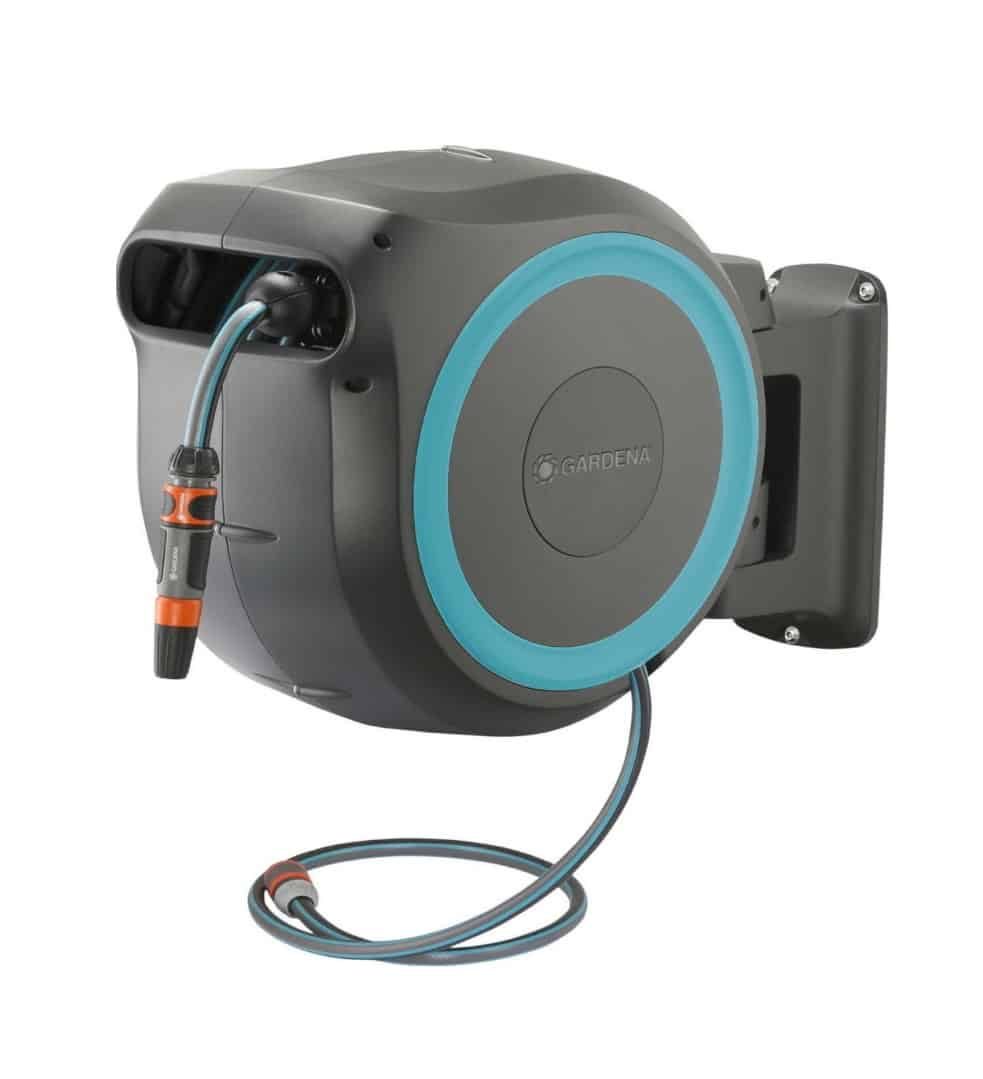
No matter if you’re a passionate weekend mechanic or a professional, if you’re working on cars or other vehicles, you’ll need an automotive multimeter. This handy little tool will enable you to diagnose and troubleshoot any electrical issues that may arise by measuring voltage (AC/DC Volts), current (A), electrical resistance (Ω), … It’s the Swiss knife of the electrical testers.
However, there are so many multimeters on the market that it can be a real challenge to find the best one for your needs. No worries, we already did the work for you!
Check out our selection of best automotive multimeters:
|
Best Value
|
|
|
Best Budget
|
|
|
Best Overall
|
|
|
Best Professional
|
Things to consider when buying a multimeter (specs)
First of all, a multimeter has to be accurate, reliable, robust and user friendly.
Secondly, you want to look for a multimeter that is most suited for your specific use and budget.
However, choosing between hundreds of different multimeters from different manufacturers, each with their own specific marketing terminologies, sounds easier than it actually is… You’ll find all kinds of features and specifications in manufacturer’s sales pitches that are confusing or even downright incomprehensible.
No worries, we’ll briefly explain the terminology so you can make the right decision:
DIY or Professional Use
For testing and troubleshooting 12V DC automotive systems, a decent DIY multimeter with the right settings and functions will work just fine.
However, if you want to use your multimeter to test a hybrid or electric car or for high amperage mains, you want to use a professional grade category III multimeter because of the high electrical voltage and current involved.
AC/DC Voltage
The AC Voltage setting (also depicted as a “V” with a wavy line and a solid line on top or as “V”) is used to measure mains voltage like domestic wall power outlets or home appliances that are mains powered.
The DC Voltage setting (also depicted as a “V” followed by a dotted line with a solid line on top) is used for automotive voltage testing, to test all types of batteries and to troubleshoot devices or appliances that are battery powered.
AC/DC Current


Resistance
Resistance, measured in Ohms (Ω), is a measurement of resistance between two points of a conductor (e.g. a wire).
It is also frequently used in automotive testing to check if the resistance of a component matches the manufacturer’s specification. It’s an important analytic tool in automotive electrical troubleshooting.
Capacitance

For automotive applications, capacitors are crucial components in engine control units (ECU), for battery controls and electric motor drives like in fuel pumps and fans. It can be found in many shapes and sizes.
The capacitor (a.k.a. condenser) is a crucial part of old-school analog ignition distributors too.
Diode
The diode setting is used to test diodes. A diode, a semiconductor device, essentially acts as a one-way switch for electrical current. It only allows current to flow in one direction, and severely restricts current from flowing in the opposite direction. It protects essential car components from current spikes and converts AC to DC.
A modern car has lots of diodes that can go bad, causing all kinds of trouble from a LED light that doesn’t work to issues with keyless entry, remote start or start-stop system or your alternator that won’t charge.
Continuity
The continuity setting is widely used in automotive troubleshooting to check fuses, light bulbs, trace or check wires, check for short and open circuits, to test switches, electrical connections, conductors and other components.
Continuity means that the component that is being tested allows electrical current to pass.
A fuse that is blown, for example, has no continuity. The multimeter display will read “OL” and there will be no beep. When testing a good fuse, you will hear a beeping sound and the display will read “000.0”.
Frequency
The frequency setting is used to measure an electrical current’s frequency in Hertz (Hz). This only applies to AC systems, DC current does not alternate (hence the name difference) and does not have a frequency (0Hz).
Because automotive electrics are DC powered, this setting is not required for automotive purposes.
Duty Cycle
The duty cycle setting is used to measure the ratio of time a load or circuit is ON compared to the time the load or circuit is OFF with AC electrical current.
Because automotive electrics are DC powered, this setting is not required for automotive purposes. DC power always has a 100% duty cycle.
Temperature, flashlight
Some multimeters come with a temperature probe and a built-in flashlight. Even though those functions are not essential, they can come in handy.
Autoranging
When you select a setting, a multimeter with “autoranging” will automatically select the correct range.
If your multimeter does not have autoranging, you will have to manually select the appropriate range. When in doubt, you want to select the highest range first and switch to a lower range for a more accurate reading.
Display
The multimeter display should be easy to read in all circumstances and from all angles.
Backlight Button
When you push this button, the display will light up. You want to check that the multimeter has a backlit LCD display, because lighting conditions may not always be optimal when working on cars.
This is considered a key feature for automotive testing.
Data Hold Button
When you push this button, your multimeter reading / measurement will freeze on the display until you push it once more.
That’s an awesome function to have if you want to keep an exact measurement at your fingertips. Works great too if the reading fluctuates too much to read: push it and the numbers on the display will freeze and give a ballpark number.
Also, if you’re in a situation where you can’t immediately read your display because of bad lighting conditions or an awkward standing / kneeling / lying position during testing with the probes, you can read the display when you’re in a more comfortable position.
Non-Contact Voltage detection (NCV Live)
When switched to the NCV setting, the built-in probe at the top of the multimeter can detect close proximity of AC voltage. When AC voltage is detected, it will emit a beep and a LED light will light up in red or green depending on the strength of the voltage.
However, this function only works with AC but not with DC current. It cannot be used for automotive testing because this is Direct Current (DC).
Auto shutdown
A multimeter with automatic shutdown function will switch off automatically to conserve battery power after not being used for 10 to 15 minutes.
This is an important feature, because a multimeter without auto shutdown will completely deplete its battery if you forget to turn it off.
How we did our review
Over the years we’ve tried and tested many different multimeters for our cars. We think a reliable multimeter is a crucial tool for car maintenance to determine the health of your car’s electrics and to prevent or to solve electrical gremlins.
We’ve used simple, cheap ones but also professional ones loaded with functions and settings, depending on the job at hand. Although most multimeters worked just fine to measure DC voltage on a car or to test continuity, not all multimeters had the same functions, settings and ease of use. Some were durable and accurate, some were cheaply built and didn’t last long, some were downright horrible to use.
Of course we didn’t only use those multimeters for automotive testing, but also for DIY and home improvement. If you buy the right multimeter, it’s a real Swiss knife. We think it’s one of the most fun tools to use too.
With so many different multimeters on the market today, we thought it’d be interesting to test what’s what, so we set out to explore the wide market of multimeters. Based on our broad experience with multimeters, for this review we dove deep into manufacturer specifications and compared customer reviews to see what their experience was. We only recommend automotive multimeters that we would buy and use ourselves and are safe and easy to use. We’ve selected four different multimeters in different price levels that stand out for automotive use but can be used around the house too. Two of them can even be used professionally.
No matter which one of these four automotive multimeters you choose, you won’t be disappointed!
Check out our favorite automotive multimeters:
Best Value Multimeter
|
- Use: Automotive and DIY
- Measures: AC/DC Voltage, AC/DC Current, Resistance
- Functions: Capacitance, Diodes, Continuity, Frequency, Duty-cycle, NCV, Temperature, flashlight
- Autoranging: Yes
- Backlit Display: Yes
- Data Hold: Yes
- Audible beep: Yes
- Auto shutdown: Yes
- Included: 1 x Multimeter, 1 x Test Leads, 2 x AA Battery, 1x Thermocouple
Let’s start with the obvious here: cool factor 200%! Man, this multimeter looks the part!
This very affordable multimeter from Kaiweets is not just looks though… Its cool-looking rugged housing can take a beating too. It won’t break if you accidentally drop it. Even with greasy hands, you can still easily hold it because of its ergonomic design. It can also be set upright with its retractable stand for hands-free use. It has a hole in the back so you can easily hang it somewhere within reach too.
There’s “parking space” for the leads in the backside too, which is a nice feature. They won’t get tangled and are always ready to use.
On top of the protective casing there’s a little knob sticking out which can be used for contactless AC detection (NCV Live). Hold it near to a live mains wire and it will start beeping intermittently and the top led will turn green. On the display an “L” will appear, meaning Low (voltage) detected. Move closer and it will beep continuously and the led will turn red. On the display a “H” will appear, meaning High (voltage) detected. Although NCV doesn’t work for DC automotive use, it’s a neat feature for DIY home improvement when you want to check for hidden electric wires before drilling holes in walls or to do a safety check to see if a wire, breaker or outlet is powered before you start working on it.
Instead of using the little knob on top of the casing for contactless detection, you can use single lead contact AC detection too, by the way. Awesome!
This multimeter has a very clear display that can easily be read from all angles and it can be backlit too. The light blue backlit display turns orange when voltage is higher than 80V/10A as an added safety feature. It has a built-in flashlight on top too so you can’t only see the display but also what you’re doing with the test leads.
Talking about the leads, this smart device has got you covered too when you’re looking to plug those test leads in the right multimeter sockets. When you select a setting, two jack sockets will light up in green to show you where to plug in the leads for this setting. How cool is that?
Because of autoranging, there’s no guessing voltages or amperages anymore either. The right range is automatically selected for you.
Besides being able to measure AC and DC voltage and current, resistance, continuity and capacitance, it also has a diode, frequency, duty cycle and temperature function. It also has a data hold and max/min button and it will automatically shut off after 15 minutes too to save battery life.
Pretty impressive!
The huge customer base says that this is a great multimeter with outstanding customer service and that it is inexpensive yet dependable.
In our experience, if you’re looking to buy a multimeter that has all the whistles and bells and looks the part but you don’t want to break the bank, this is the one to get.
PROS:
- Won’t break the bank but has everything you need, and more
- Looks the part
- Robust Heavy Duty casing with ergonomic design
- Has “parking spots” on the back of the casing for the leads
- Unique illuminating lead sockets feature prevents connecting errors
- Color changing display and warning beep features enhance safety
- Integrated flashlight and NCV are nice extras
- Temperature measurement with thermocouple included
CONS:
- Cannot be calibrated
- Not for professional use
- Protective case not included
Best Budget Multimeter
|
- Use: Automotive and DIY
- Measures: AC/DC Voltage, DC Current, Resistance
- Functions: Diode, Continuity
- Autoranging: No
- Backlit Display: Yes
- Data Hold: Yes
- Audible beep: Yes
- Auto shutdown: No
- Included: 1x Digital Multimeter, 1x 9V 6F22 lithium Battery, 2 x Test Leads
The reason why we chose this multimeter for our Best Budget Automotive Multimeter is that it has all the basic features one needs to troubleshoot his ride for pocket change. Yes, it’s dirt cheap but nonetheless it’s a product from AstroAI, one of the big names in budget multimeters.
In this price range you wouldn’t expect it to have a clear backlit display, data hold, an audible beep and low battery indication, yet it has! It has a nice design and a quality look and feel too. It even has fused overload protection.
Check out its price and gasp!
This small guy is a big hit and it has been reviewed by tens of thousands of customers who give it a rating of 4.5/5. They say that it’s a great little investment and although you use it a lot, it will keep going strong. Even a retired electrical engineer who owns this tester approved it for occasional light testing.
We’ve searched high and low for the most affordable multimeter to test DC volts or amperage, continuity, resistance, diodes and has a backlit display and this is it!
PROS:
- Does what you expect it to for pocket change
- Decent quality feel and look
- Backlit display
- Data Hold button
- Has fused overload protection
CONS:
- No auto shutdown
- No auto ranging
- Does not measure AC current
- Cannot be calibrated
- Not for professional use
- Protective case not included
Best Overall Multimeter
|
- Use: Automotive, DIY and Professional
- Measures: AC/DC voltage, AC/DC current, Resistance
- Functions: Capacitance, Diode, Frequency, Duty-cycle
- Autoranging: Yes
- Backlit Display: Yes
- Data Hold: Yes
- Audible beep: Yes
- Auto Shutdown: Yes
- Included: 1x palm-sized digital multimeter, 1 pair TL75 Hard Point™ Test Leads, 2x AAA batteries (installed), SmartStrap™ intelligent magnetic, multi-purpose lanyard
The Fluke 107 professional grade multimeter is surprisingly small yet very capable. It has a backlit display and does everything you need for automotive troubleshooting. It is Cat III so you can even use it to test high voltage hybrid or full electric vehicles. It also has all the settings you need around the house and for miscellaneous DIY projects.
We like the included SmartStrap, which can be attached to the back of the multimeter. This strap is magnetic and can be used to suspend the multimeter anywhere under your car’s hood or under your vehicle so you have your hands free and your eyes on the display when you use the test leads. It also folds to become a stand.
It is designed to withstand a drop of 10ft, so this is a tough little fella.
Customers say that you can take this practical hand palm size multimeter anywhere with you because of its compact size. It lives up to the high quality reputation the Fluke brand has, they claim.
If Fluke quality is what you’re looking for and you want to use your multimeter for automotive testing as well as allround use but don’t want to spend hundreds of dollars, this small wonder will hit your sweet spot!
PROS:
- Professional quality
- Has all the main features you’ll need to test your car’s electrics
- Also perfectly suited for miscellaneous other DIY and professional projects
- Comes with a SmartStrap, a magnetic multipurpose lanyard
- Compact pocket size means you can take it anywhere
CONS:
- Protective case not included
Best Professional Multimeter
|
|
|
- Use: Automotive, DIY and Professional
- Measures: AC/DC voltage, AC/DC current, resistance
- Functions: Capacitance, Diode, Continuity, Frequency, temperature
- Autoranging: Yes
- Backlit Display: Yes
- Data Hold: Yes
- Audible beep: Yes
- Auto shutdown: Yes, Selectable
- Included accessories: Automotive multimeter, silicone test leads, large jaw alligator clips, test probes, inductive RPM pick-up probe, ToolPak magnetic meter hanging kit, temperature probe, two automotive back probe pins, insulation piercing probe, durable carrying case + holster, 9V battery (installed)
This professional grade automotive multimeter is specially developed and tested for intensive daily use in an automotive workshop environment. It is Cat III so you can even use it to test high voltage hybrid or full electric vehicles. Of course it can also be used around the house and for miscellaneous DIY projects.
The included protective carrying case protects and organizes the Fluke 88 multimeter, its silicone test leads and its automotive accessories. The included magnetic hanging kit can be used to hang the multimeter within reading distance under your car’s hood or underneath. It also comes with a complete set of probes, including an inductive RPM pick-up probe.
It’s clear that Fluke went to great lengths to make this the ideal kit for any garage owner or car fanatic. Although it’s not the cheapest out there, it is our preferred automotive kit, that’s for sure! And, if you take care of it, this high quality product will last your lifetime.
Customers say this kit is very solid and reliable and give it an incredible 4.8/5.
PROS:
- Especially developed for automotive testing
- Also perfectly suited for miscellaneous other DIY and professional projects
- Quality to last a lifetime
- Complete set, needs no extra accessories
- Great protective carrying case included
- Handy RPM probe included
- Comes with the best, most flexible silicone leads
CONS:
- It’s definitely not the cheapest out there (but it’s awesome)
Comparison Table of the Best Automotive Multimeters
| Brand | Name | |
|---|---|---|
| Best Value | KAIWEETS | Digital Multimeter |
| Best Budget | AstroAI | AM33D |
| Best Overall | Fluke | 107 |
| Best Professional | Fluke | 88 V/A Automotive Multimeter Combo Kit |
Final Thoughts
Which one is the winner?
Well, that depends on what you plan to use it for and how much you want to spend:
If you’re looking for the most bang for your buck, we’d recommend the KAIWEETS Digital Multimeter. It looks the part, it’s rugged and has most of the features a weekend mechanic will need.
If you’re in for a professional multimeter that won’t break the bank, the Fluke 107 is your best choice. It’s so compact you can take it anywhere. And, it’s a true Fluke, arguably the ultimate brand when it comes to multimeters.
Anyone who wants to go the whole nine yards and won’t settle for second best, will want the Fluke 88 V/A Automotive Multimeter Combo Kit. There’s just no two ways about it: this is the ultimate automotive multimeter set.
If budget is your priority, the AstroAI AM33D is a great choice. It’ll do all the basic testing reliably and you’ll only need pocket change to afford it!
Happy detailing!
FAQ’s
How Many Volts Is a Car Battery?
All modern car batteries are 12V, as well as the vast majority of classic car batteries. However, some antique or vintage cars may have a 6V car battery. Semi trucks and military vehicles sometimes have a 24V or a 36V battery.
How to Tell if a Car Battery Is Bad?
Your car battery is most likely bad when:
- your car cranks so slow that it is difficult or impossible to start the engine
- your car doesn’t crank and you only hear a clicking sound or no sound at all when you turn the ignition key or push the start button
- your headlights are very weak and dim when you switch them on with your engine not running,
- your car battery reads below 12.6V when fully charged and/or drops below 10V while cranking
- it won’t hold its charge
- your battery is older than 5 years
For more information, check How To Test A Car Battery With A Multimeter, Best Car Battery Testers, Best Car Batteries, How To Disconnect a Car Battery.
At what Percentage Should a Car Battery Be Replaced?
To know what percentage your car battery is, you can simply use a multimeter:
What does the battery voltage reading on the multimeter tell you?
The general rule of thumb for standard 12V car batteries in relation to their charging levels:
12V or less = dead or dying, needs to be replaced
12.10V = 25% charged
12.30V = 50% charged
12.50V = 75% charged
12.60V =100% charged (had time to rest after full charge)
12.75V =100% charged (fresh full charge)
This correlation may slightly vary between different brands and types of wet lead-acid car batteries, but it gives a good indication.
For more information, check How To Test A Car Battery With A Multimeter, Best Car Battery Testers.
How to Check a Car Battery With a Multimeter?
A car battery can easily and reliably be tested with a multimeter. You want to test your car battery safely using a quality multimeter.
For a step-by-step guide, check out “How to test a car battery with a multimeter”.
Why You Should Trust Our Reviews And Content
All our website content and reviews are 100% unique, protected and based on our own thorough research.
They are the result of our hands-on testing, data analytics, expert consultation and customer review analysis, enhanced by our own extensive expertise.
We do not compromise: our focal point is always on you, our valued visitor.
Our website content and reviews are your unbiased, unsponsored tools to get the job done better and quicker, with less expense.

CCM is reader-supported. When you buy via links on our site, we may earn an affiliate commission at no cost to you. Learn more.




















